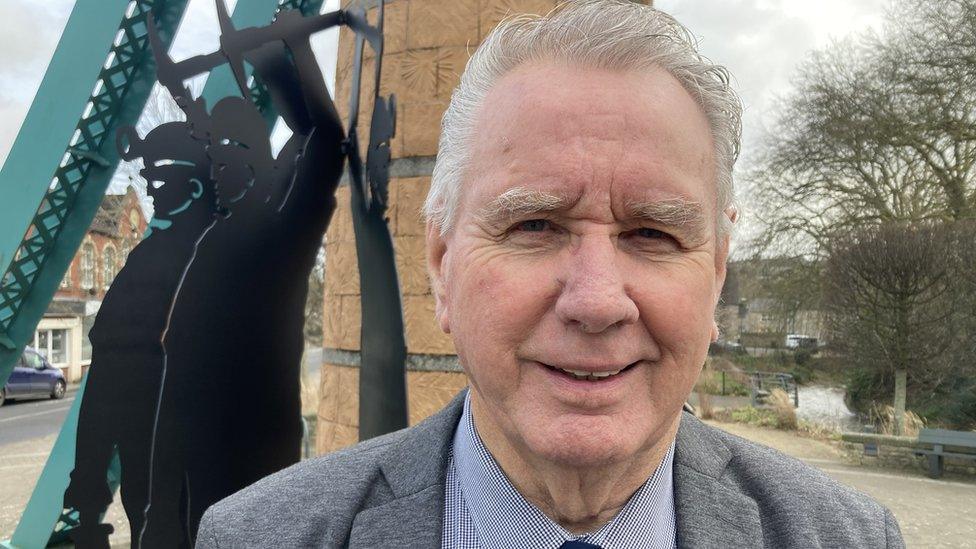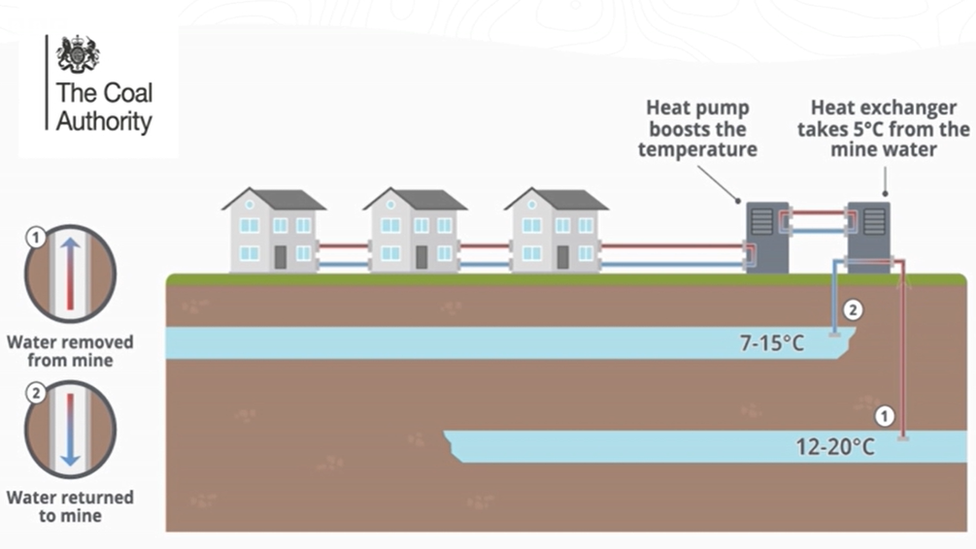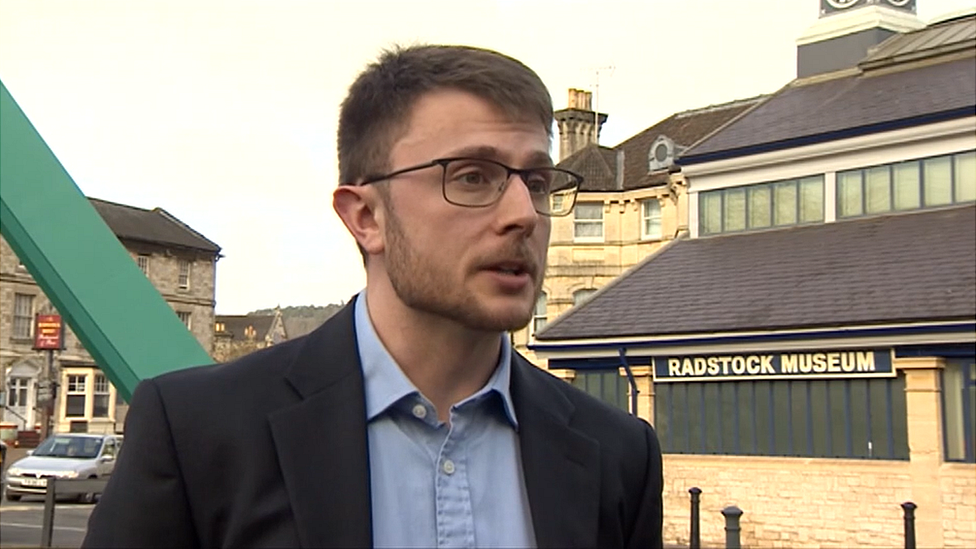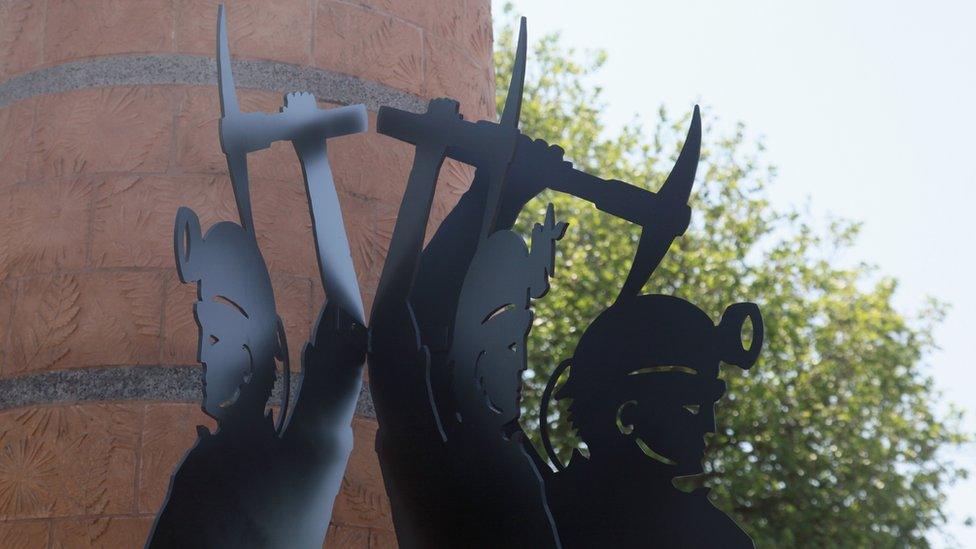Flooded mines in South West could be used to heat homes
- Published

Former miner Bryn Hawkins said the project is "exciting"
Old flooded mines could be used to heat thousands of homes in the West.
The West of England Combined Authority (WECA) is backing a £1.6m study to see if heat pumps could harness water in old pits.
Old mines naturally flood with water, heated by geothermal processes, and the water can then be piped above ground for heating.
WECA mayor Dan Norris said there is the potential to heat more than 100,000 homes and schools and hospitals.
Mr Norris said if the scheme proved feasible it would be "absolutely fantastic for future generations".
The method is already heating 350 homes, offices, a college and an arts centre in Gateshead and studies suggest such a scheme would work in Somerset and Bristol.

The scheme works by drawing water up to the surface from flooded mine shafts
"I love the idea that coal mines could be repurposed to provide the clean energy of the future - it's coming full circle", said Mr Norris, who launched the Heat from Mines initiative in Radstock on Wednesday.
Under the scheme, coal mines around Somerset, Bristol and South Gloucestershire, such as in Yate, Chew Magna, Kinsgwood and Nailsea, would be given a new lease of life, having been inactive for decades.
Among the last mines to close in the area was Writhlington, near Radstock in Somerset, in 1973 - when mine engineer Bryn Hawkins was among those who lost their jobs.
He said the idea of bringing mines back into use was "exciting".
"This would open up a whole new world and people will realise there are mines in the area," he said.
Mr Hawkins added: "The ex-miners who worked and toiled very hard underground in very dangerous conditions, like my father, would be over the moon to think there is something going to happen with the mines that will benefit everyone."

Dan Martin from The Coal Authority said feasibility studies are being carried out
John Kimmance, from the Ordnance Survey, has been mapping how many buildings could benefit from the method and about six million homes have been identified.
"It still uses some electricity for the heat exchanger. For every unit of electricity used, it can generate two to four times that in heat," Mr Kimmance said.
"It's a very efficient and therefore carbon-friendly way of heating. Some of these mines fuelled and powered the country over hundreds of years.
"It's a nice thought they could continue to do that in the future."
Dan Martin from The Coal Authority said they would be looking into the feasibility of the project and then a more site-specific investigation before potentially "getting boots and drilling rigs on the ground".
He added they would also be looking at existing infrastructure that might be able to support a mine water heat scheme.

Follow BBC West on Facebook, external, X, external and Instagram, external. Send your story ideas to: bristol@bbc.co.uk , external
- Published5 June 2023

- Published5 November 2023
